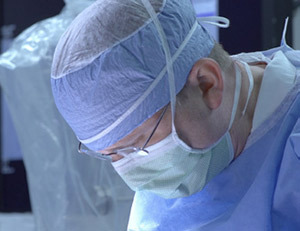Aspirin has been used as a pain reliever for more than 100 years. It has been used to prevent and manage heart disease since the 1970s. Talk to your doctor about the benefits and risks of taking a daily aspirin before you start aspirin therapy. Recent studies show that daily aspirin is helpful for people with a history of heart disease, but may not be a good option if you have not had cardiovascular issues in the past.
How does aspirin help my heart?
- Prevents blood clots. Aspirin keeps blood clots from forming. Blood clots are good when they stop bleeding, but harmful when they clog the arteries. Clogged arteries (atherosclerosis) can lead to heart attack and stroke.
- Reduces the risk of future heart attack and ischemic stroke if you have a history of these conditions.
- Reduces your risk of dying. If you take aspirin while you are having a heart attack, you have a better chance of surviving and will have much less damage to your heart.
- May reduce your risk of some types of cancer.
Aspirin during a heart attack
If you are having symptoms of a heart attack, call 911 right away! Do not wait! If you are not allergic to aspirin, the 911 operator may tell you to slowly chew a 325 mg aspirin. Aspirin works best if you take it within 30 minutes of the start of symptoms. Do NOT take an aspirin if you have symptoms of a stroke.
Should I take a daily aspirin?
Talk to your doctor before you start taking aspirin. Tell your doctor if you are allergic to aspirin, ibuprofen or naproxen. Your doctor may tell you to take a daily low-dose aspirin if you have:
- Atherosclerosis.
- A history of ischemic stroke or transient ischemic attack (TIA).
- A history of heart attack or symptoms of heart attack.
- Chest pain (angina).
- Prior bypass surgery, angioplasty or stent(s) as treatment for heart disease.
How much aspirin should I take?
Ask your doctor if it is safe for you to start aspirin therapy and how much aspirin you should take. The recommended dose is 81 mg (one low-dose aspirin) per day, but your doctor may want you to take a different amount.
How should I take aspirin?
- Do not take aspirin on an empty stomach. Take it with a meal and drink a full glass of water.
- Do not break, crush, or chew extended-release tablets or capsules — swallow them whole. You can chew, crush or dissolve chewable aspirin.
- Do not take aspirin in place of other medications or treatments recommended by your doctor.
- If you drink alcohol, drink in moderation. Drinking while taking aspirin increases your risk of stomach bleeding. Talk to your doctor about your risk and ways to prevent problems.
- Ask your doctor which medications are safe to take for pain relief or colds. Some medications cannot be taken with aspirin. Read the labels of all pain relievers and cold products to make sure they are aspirin-free.
- Do not take other medications that contain aspirin or nonsteroidal anti-inflammatory drugs (NSAIDs). These can cause bleeding problems if you take them while taking aspirin.

Before any surgical or dental procedure or emergency treatment, tell the doctor or dentist that you take aspirin. You might need to stop taking aspirin 5 to 7 days before dental work or surgery. Do not stop taking aspirin or any medication without asking your doctor.
What are the risks of aspirin therapy?
All medications have risks, and it is important to talk to your doctor before you start taking any medication. The risks of taking aspirin are:
- Increased risk of bleeding and ulcers in your stomach.
- During a stroke, aspirin increases the risk of bleeding into your brain.
- Common side effects of aspirin include nausea, upset stomach, nervousness, and trouble sleeping. Call your doctor if any of these symptoms become severe or do not go away.
Call your doctor right away if you have:
- Severe stomach pain or heartburn.
- Severe nausea or vomiting.
- Any signs of unusual bleeding, such as blood in your urine or stools, nosebleeds, unusual bruising, heavy bleeding from cuts, black tarry stools, coughing up blood, unusually heavy menstrual bleeding or unexpected vaginal bleeding, vomit that looks like coffee grounds.
- Signs of allergy, including hives, facial swelling, rash.
- Asthma attack.
- Ringing in the ears.
- Severe headache pain.
- Confusion.
DO NOT Take Aspirin if:
- You are allergic to aspirin.
- You are pregnant (unless your doctor tells you it is ok).
- You are a heavy drinker.
- You are under the age of 18 and recovering from a viral infection such as the flu or chicken pox.
- You have an ulcer or any bleeding problem.